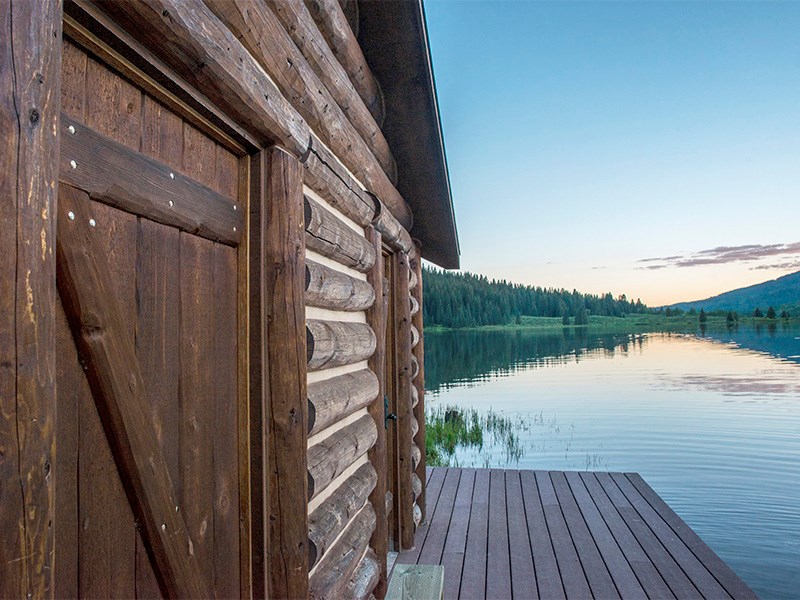Powell Lake float cabin owners should prepare to have the provincial government take a closer look at how they are handling their wastewater.
Ministry of Forests, Lands, Natural Resource Operations and Rural Development compliance and enforcement officers have been inspecting float cabins in Three Mile Bay, also known as Schmarge Bay, on the western shore of Powell Lake.
Powell River contractor Troy Marshall co-owns one of the six cabins in the bay and said the inspections started in January 2016 after he was notified that government officials would be coming around to take a look.
The officers expressed numerous concerns after the inspection, including that the cabin’s grey water was being directed into the lake, he added.
“I'm on inspection number six,” said Marshall. “It's beyond frustrating.”
Inspections initially began at Three Mile Bay because the land is part of Tla’amin Nation’s treaty settlement lands, said Tla’amin hegus Clint Williams. The first nation indicated to the BC government that it wanted the land back in pristine condition, he added.
Marshall said he had no problem complying with requests to clean up the land portion of the tenure, but has more difficultly with the government’s sudden crackdown on how cabin owners have been handling wastewater from sinks, laundry and showers, also known as grey water, for the past 60 years.
“No one on the lake has an issue about being environmentally friendly and keeping the lake pristine for our children,” said Marshall.
Float homes are required to have or be connected to a provincially approved sewage disposal system, according to provincial standards. Marshall said it is one thing to have float homes in a marina connected to a sewer, but it is not as feasible for cabins in isolated bays on Powell Lake.
As of 2010, provincial sewer regulations do not distinguish raw sewage, known as black water, from grey water and prohibit any discharge of either into fresh water.
Many cabins on the lake rely on land-based pit toilets, a septic system or composting or chemical toilets.
According to a ministry spokesperson, the provincial government is working with Powell River Cabin Owner Association and Vancouver Coastal Health to ensure float cabin owners are aware of all tenure requirements.
A 1998 strategic plan from then BC Ministry of Environment, Lands and Parks for Powell Lake identified that float homes on the lake did not appear to be impacting the lake as a whole, but did indicate there was potential for impacts from wastewater discharge into shallow, poorly flushed bays. The report notes that the lake is fast moving because of the hydro-electric dam and is nutrient-poor near the surface.
Marshall said he does not understand the motivation behind the government’s sudden attention. He added the way people handle their grey water has not been kept a secret and is plainly stated in the 1998 report.
Powell River resident Michelle Sauve and her husband Jeff also own a cabin on Three Mile Bay. Sauve, who serves as secretary on cabin owners’ board, said cabin owners have received contradictory messages from the province on the grey water issue.
According to Sauve, several meetings between cabin owners, the provincial government and Vancouver Coastal Health have taken place to discuss the problem of treating grey water. At the last meeting, the discussion was left with an understanding that cabin owners do not have a clear solution for treating grey water, so it would be set aside until a workable one could be found, she said.
Last month, cabin owners received a letter from the government saying they needed to have the grey water discharge problem solved before their water tenures come up for renewal or being allowed to stay on the lake could not be guaranteed.
"It's something that is coming to the forefront and something that will have to be dealt with,” said Sauve. “It's not going to go away.”



